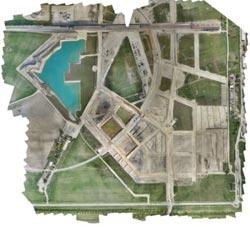Smart City in Vienna: Model Project Aspern

<br>
A living laboratory will be created in the next five years in the waterside district of Aspern, one of the largest urban development projects in Europe. Here power supply, building systems, intelligent power grids, and information and communication technologies will interact optimally.
The result will be the most efficient resource management possible, with maximum comfort for residents and users. On July 3, 2013, the partners signed the contract establishing the company Aspern Smart City Research, which has a budget of almost €40 million. The company will start work on October 1.
A multifunctional urban district will be created in Aspern, which is located in the northeastern part of Vienna. This area will include apartments and offices, a business, science, research, and education quarter. Altogether, it will cover around 240 hectares. Fifty percent of the space is reserved for public areas – plazas, parks, and recreation areas. Step by step, between now and 2030, the district will evolve into an intelligent city of the future, with 20,000 residents and 20,000 additional jobs.
This project represents an opportunity to develop a long-term integrated concept for an energy-optimized city district using appropriate technologies, products, and solutions in a real-world infrastructure. The goal is to make the whole system “smarter.” One step involves connecting buildings that have different functions, i.e. offices and apartments, to the low-voltage distribution network. In the future building control systems will manage the energy exchange between buildings and optimize energy consumption locally. This offers building operators the possibility to participate actively on the energy markets.
Information and communication technologies play an important role in this process, as does data evaluation. New IT solutions detect faults in the system, recognize inefficient consumption patterns, and identify potential opportunities for savings. Decentralized power generation from renewable energy sources will supply Aspern's electrical needs. Modern storage technologies will play an important role here.
Corporate Technology, Siemens global research department, will be in charge of the project. It will be working together with Siemens' building technicians and smart grid experts. The other partners include local power companies and development associations.
Media Contact
More Information:
http://www.siemens.com/innovationnewsAll latest news from the category: Architecture and Construction
Newest articles

NASA: Mystery of life’s handedness deepens
The mystery of why life uses molecules with specific orientations has deepened with a NASA-funded discovery that RNA — a key molecule thought to have potentially held the instructions for…

What are the effects of historic lithium mining on water quality?
Study reveals low levels of common contaminants but high levels of other elements in waters associated with an abandoned lithium mine. Lithium ore and mining waste from a historic lithium…

Quantum-inspired design boosts efficiency of heat-to-electricity conversion
Rice engineers take unconventional route to improving thermophotovoltaic systems. Researchers at Rice University have found a new way to improve a key element of thermophotovoltaic (TPV) systems, which convert heat…



